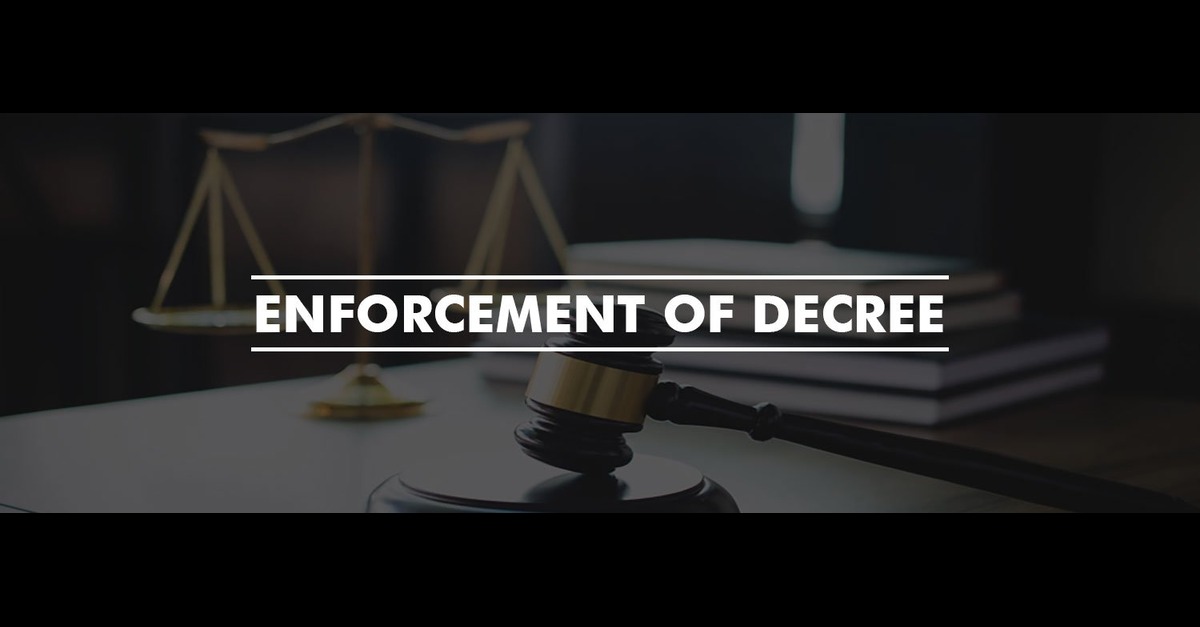Case Name: Sulthan Said Ibrahim v. Prakasan & Ors.
Case Number: Civil Appeal No. 7108 of 2025 (Arising out of SLP (C) No. 4307 of 2022)
Date of Judgment: 23 May 2025
Quorum: Justices J.B. Pardiwala and R. Mahadevan
FACTUAL BACKGROUND
A series of legal proceedings began the case which stems from a 2003 performance directive that protected the respondent-plaintiff’s rights in the property sale agreement of 14.06.1996. The suit property is a one-cent commercial plot in Palakkad, Kerala. The original defendant Jameela Beevi entered into an agreement to sell the property to the respondent at a price of ₹6,00,000 with ₹1,50,000 being the outstanding balance amount. The appellant Sulthan Said Ibrahim stood as a witness during the agreement because he is the grandson of Jameela Beevi and the son of her deceased son Shahul Hameed. After the defendant’s death in 2008, her legal heirs, including the appellant, were impleaded in the execution proceedings.
The decree remained final after the appeals got dismissed but the execution process faced constant postponements. In 2012 the appellant submitted an interlocutory application under Order I Rule 10 CPC which requested removal of his name because he claimed he was not an heir and had separate tenancy rights. The trial court rejected the application in 2013 and the High Court sustained this decision in 2021.The present appeal challenges these orders.
ISSUES FOR DETERMINATION
- Whether the High Court erred in rejecting the appellant’s application for deletion from the party array as barred by res judicata?
- Whether the appellant can claim protection under the Kerala Buildings (Lease and Rent Control) Act, 1965?
- Whether the decree for specific performance implicitly included the relief of possession?
APPELLANT’S CONTENTIONS
The appellant contended that:
- He was wrongly impleaded as a legal heir under Mohammedan law, which does not recognize descendants of a predeceased son as heirs to a grandparent’s estate.
- He is a protected tenant under the Kerala Rent Control Act, having inherited tenancy rights from his father dating back to 1969.
- No relief of possession was granted in the original suit; hence, only execution of the sale deed could be enforced, not delivery of possession.
- The doctrine of res judicata should not apply to impleadment orders under Order I Rule 10 CPC, which can be invoked at any stage.
RESPONDENT’S CONTENTIONS
The respondent stated the following points:
- The appellant chose not to dispute his involvement in the case despite having four years to do so.
- His participation in previous applications without objection estopped him from later challenging his impleadment.
- The tenancy claim was an afterthought, lacking any contemporaneous documentation and raised only to delay execution.
- The sale deed had already been executed through court intervention, but possession remained obstructed.
ANALYSIS
The Supreme Court observed that:
- The application under Order I Rule 10 was barred by constructive res judicata, as the appellant failed to challenge his impleadment at the appropriate time under Order XXII Rule 4 CPC.
- The appellant engaged in previous legal proceedings by fighting against contract cancellation but he never contested his position as a legal heir.
- The court ruled that judicial finality of impleadment stands unassailable since any attempt to reopen it would weaken the integrity of judicial procedures.
- The tenancy claim was unsupported by credible documents. Licences obtained after the decree were deemed strategic attempts to frustrate execution.
Referring to Satyadhyan Ghosal v. Deorajin Debi and Bhanu Kumar Jain v. Archana Kumar, the Court reaffirmed that res judicata applies not only across different suits but also at different stages of the same proceeding. The Court also held that possession was implicitly included in the decree, following the principle laid down in Babu Lal v. Hazari Lal Kishori Lal and Rohit Kochhar v. Vipul Infrastructure Developers Ltd.
JUDGMENT
The Supreme Court supported the High Court and Trial Court rulings by rejecting the appeal while requiring ₹25,000 as Legal Services Authority payment. The Executing Court must obtain peaceful possession of the property for the decree-holder within two months by utilizing police assistance when required.
CONCLUSION
The judgment establishes both the permanent nature of impleadment decisions and rebukes attempts to use procedural mechanisms for blocking justice. The Court established that tenants do not possess the right to present outdated claims as a means to stop the execution of a decree that has been confirmed for an extended time. The ruling sends an unambiguous warning against procedure misuse while defending the implementation of valid decrees through extended legal processes.
“PRIME LEGAL is a full-service law firm that has won a National Award and has more than 20 years of experience in an array of sectors and practice areas. Prime legal falls into the category of best law firm, best lawyer, best family lawyer, best divorce lawyer, best divorce law firm, best criminal lawyer, best criminal law firm, best consumer lawyer, best civil lawyer.”
WRITTEN BY HARINI S


